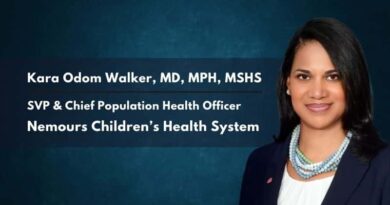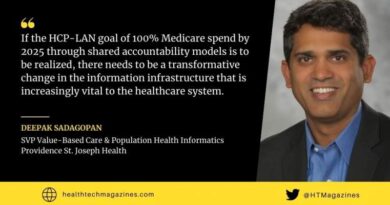Universal Internet Access is a Key Factor in True Population Health
By Molly Menton, Director, Clinical Delivery, Evolent Health
When everyone does better, everyone does better. There are so many polarizing views of the concept of “free” in the United States today, it becomes nearly impossible to unpack in one article. What most people can agree on, despite disagreements on how to operationalize, is the idea that when people have what they need to succeed, society is elevated. Although it seems that few can agree on how universal healthcare could be implemented in a country like the United States, it’s fair to say that most recognize that a healthier population leads to more productive and peaceful society.
Why not close the gap and provide all patients with better access and connectivity?
While dissecting the opportunities and pitfalls of the Medicare-for-all concept could be a riveting way to start the week, it may make more sense to take a step back and look for other, possibly more basic options to help keep the masses healthy (or at least, healthier.)
Universal internet access may sound like a luxury in a world where Wi-Fi is used for just as many non-necessities (hello Buzzfeed quizzes) as it is for necessities. It’s nearly impossible and totally impractical to try and differentiate what internet use is considered necessary versus superfluous, and it’s not in anyone’s best interest to start policing search histories for the average Joe. But it could very well be worth our while, as a society, to supply the entire population with reliable, highspeed, free internet. When it comes to making incremental changes in how consumers engage in their healthcare and receive information, consistent, quality Wi-Fi access could drastically change how patients take care of themselves.
Healthcare professionals do not typically encourage patient-Googling of their healthcare conditions. But suppose for a moment that all patients could easily access to information about their conditions? If a provider suggested a specific educational website and the patient could actually engage in learning? Or patients could consistently access medical rideshares without worrying about data usage or connectivity problems? The potential for empowering all patients through quick information channels could be industry-changing. Skeptics might be inclined to assume that those who can’t afford basic internet likely can’t afford the devices needed for internet services, but we all know that’s not the case. Many communities and states have programs to offset the costs associated with smartphones, so even the most vulnerable patients are getting more connected each day. Why not close the gap and provide all patients with better access and connectivity?
If patients knew that they would always have reliable connectivity to send messages, participate in virtual care, and access condition-related information, there could be a measurable increase in patient engagement and accountability. The old saying that knowledge is power very much applies in this idea; when patients are empowered through information, they can be partners in their care. While it can be daunting to add yet another line item to a city budget, universal internet access could decrease overutilization, particularly of emergency services, by helping patients stay connected to their healthcare providers and treatment plans.
Of course, many places offer free Wi-Fi such as libraries and coffee shops. And yet we know that patients who have mobility limitations, transportation problems, or other barriers, in general, may not be able to physically go to a place to connect to Wi-Fi. Allowing everyone to connect to the internet can make this very large world feel a little smaller and more cohesive.
In 2016, the United Nations declared that universal internet access is a basic human right as it affords a person the ability to communicate and express themselves. While global internet access may be many years away, the United States can help lead the charge. The USA can provide all of its citizens with this human right without spending inordinate amounts of time worrying (more so judging) how people might abuse this right. The missteps of a few should not dictate the rights of so many vulnerable people who could benefit from universal internet access.
The internet has changed the world in ways that previous generations could not even fathom. While universal healthcare or universal post-secondary education may be long way off, it seems that the idea of universal access to the same information is a lighter lift that could benefit the masses.
Note: The views expressed in this article are that of the author and do not represent Evolent Health.




Pingback: Data Governance: A Matter of Trust | HealthTech Magazines